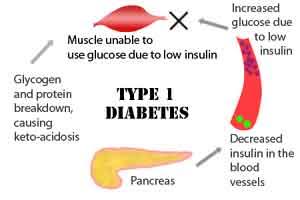- Home
- Editorial
- News
- Practice Guidelines
- Anesthesiology Guidelines
- Cancer Guidelines
- Cardiac Sciences Guidelines
- Critical Care Guidelines
- Dentistry Guidelines
- Dermatology Guidelines
- Diabetes and Endo Guidelines
- Diagnostics Guidelines
- ENT Guidelines
- Featured Practice Guidelines
- Gastroenterology Guidelines
- Geriatrics Guidelines
- Medicine Guidelines
- Nephrology Guidelines
- Neurosciences Guidelines
- Obs and Gynae Guidelines
- Ophthalmology Guidelines
- Orthopaedics Guidelines
- Paediatrics Guidelines
- Psychiatry Guidelines
- Pulmonology Guidelines
- Radiology Guidelines
- Surgery Guidelines
- Urology Guidelines
New hope for patients of Type 1 diabetes, psoriasis

Antibodies derived from people suffering from a rare autoimmune disorder may have therapeutic potential for Type 1 diabetes and psoriasis a chronic, recurrent inflammatory skin disorder, says a study conduced on mice.
An international team, led by researchers from King's College London, analysed samples taken from 81 people with a rare autoimmune disorder called autoimmune polyendocrine syndrome type 1 (APECED).
To discover if APECED patients' auto antibodies could have therapeutic potential, the team tested them in a mouse model of psoriasis.
They found that injecting the mice with autoantibodies from the APECED patients could inhibit the development of psoriatic pathology.
The team also found that increased T cell auto-reactivity in patients with APECED was linked with increased B cell auto-reactivity. B cells are a type of immune cell that produce antibodies.
"This is very significant because antibodies make up one of the largest sectors of the pharmaceutical market, and one of the great quests in the pharmaceutical industry is to be able to routinely generate antibodies against human proteins implicated in diseases," said Adrian Hayday from King's College London.
"The findings suggest a route to drug recovery in which, naturally arising highly-efficacious auto antibodies can be isolated from patients whose clinical information guides us as to the diseases most likely to benefit from those antibodies," he added in a paper published in the journal Cell.

Disclaimer: This site is primarily intended for healthcare professionals. Any content/information on this website does not replace the advice of medical and/or health professionals and should not be construed as medical/diagnostic advice/endorsement or prescription. Use of this site is subject to our terms of use, privacy policy, advertisement policy. © 2020 Minerva Medical Treatment Pvt Ltd